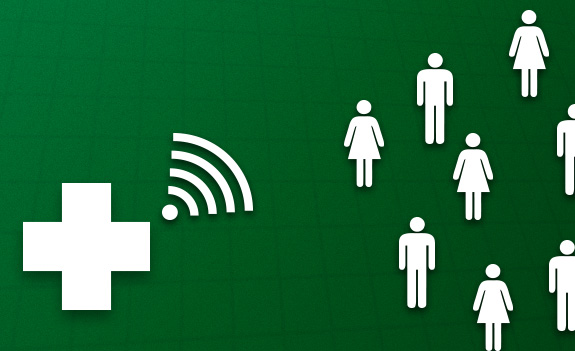Patient Engagement Solutions for Healthcare Providers
Patient engagement is increasingly becoming one of the foremost areas of concern for most modern healthcare providers. Thanks to the consistent rise in technical standard of healthcare and emerging high tech solutions for informing as well as engaging patients in their day to day management of treatment and care, nowadays healthcare as a whole has gone through a deep and wide technological transformation. While the implications of this tech maneuver in the healthcare sector are still not figured out, they have been particularly beneficial in raising the standard practices in the healthcare sector, alleviating patient awareness and making patient and treatment supervision easier than ever before. In more than one way new patient engagement solutions for healthcare providers revolutionized the various facets of treatment, most notably chronic care management.
 Why patient engagement is crucial?
Why patient engagement is crucial?
There are many ways engaging patients may prove beneficial for the healthcare providers. First of all, while you educate and inform patients on their health condition and the treatment procedure, you actually take a greater portion of regular load from the caregivers. A conscious and cooperating patient shows faster improvement than an ignorant and non-supportive patient. Moreover, with smarter and high tech solutions like web portal or mobile app the health care becomes more accessible than ever. Patient engagement is particularly crucial for rendering quality treatment and care for chronic diseases. Elderly people with deteriorating physical and mental abilities are most vulnerable to multiple chronic health conditions and for them such easy to use, simple and less time consuming engagement maneuvers become more helpful.
• Patient engagement solutions are in sync with the latest uprising in web and mobile technology.
• By educating and informing patients on a continuous basis you in most cases replace the necessity of caregivers. This translates into huge savings of health care dollars.
• By educating patients you make them efficient in self care and make them address their health problems in time.
• Healthcare process gets faster, efficient and quality focused with patient engagement solutions.
• Healthcare becomes more accessible with smart health care tools like mobile apps and web portals.
Patient engagement is the key to chronic care management
More than any area of healthcare patient engagement is most crucial to chronic care management. Chronic health complications by their nature takes time to manage and they often need long term and regular treatment setting milestones for improving the condition on a gradual basis. For this type of ongoing and engaging method of treatment and care healthcare providers find it extremely necessary to educate, inform and engage patients in their process of treatment and remedies. Chronic care (http://en.wikipedia.org/wiki/Chronic_care) unlike other modes and facets of treatment needs more responsive engagement of patients to make their condition better on a timely and steady manner. For instance, a mobile medical app can offer quick fitness and calorie information to a chronic patient who is about dieting. The patients with chronic diseases need to take initiative in their gradual betterment and some engaging high tech solutions just do it in an appropriate manner.
Mobile app as patient engagement solution
Thanks to widespread reach and adoption of mobility across healthcare, increasing number of patients is using mobile apps to access health care, track health information, supervise health condition and look through medical record corresponding to their diseases. Patients today do not need to wait for an appointment with the doctor, but rather can facilitate one through a mobile app. Moreover, they can seek online medical advice and exact prescription by using an authorized medical app from the healthcare provider. A comprehensive medication tracker app can help patients to schedule doses, make them remember medicine timing, track certain health conditions like heart rate, sleep conditions, pulse rate, etc. and finally can make them well informed about the medical history and path of treatment.




